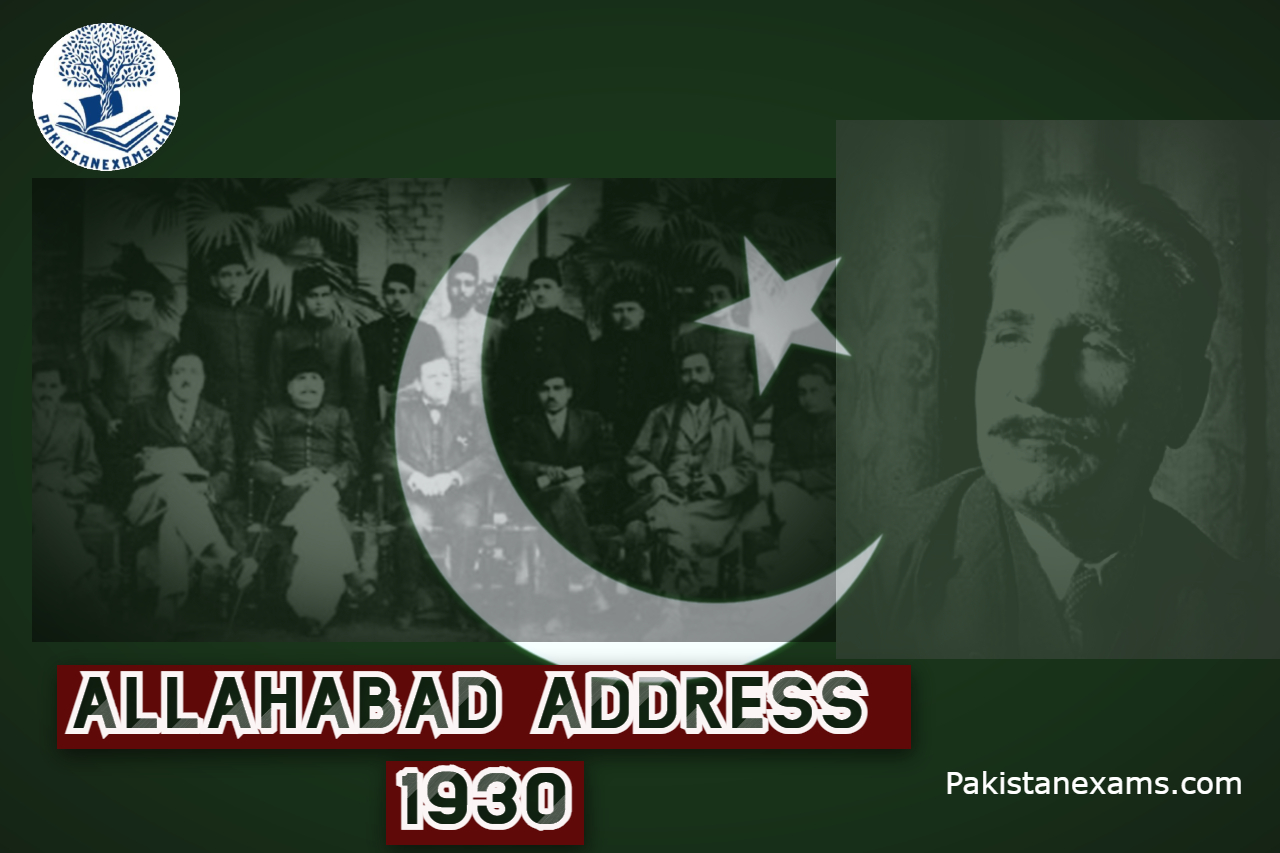Introduction
Some of the Muslim scholars and leaders who were well aware of the Hindu-Muslim conflict called for India’s separation. Allama Muhammad Iqbal, however, provided the clearest description of the inner sentiments of the Muslim community in his December 29, 1930, presidential address to the All India Muslim League in Allahabad. By 1930, Allama Muhammad Iqbal had become a widely renowned poet, philosopher, and thinker.
Background of Allahabad Address
By 1930, the course of political events had become alarming for the Muslims of India. Their interests were attacked from two sides. Hindus, on the one hand, presented the Nehru Report as the final draft of India’s constitution. Moreover, on the other hand, the Muslim demands were completely rejected in the Simon Commission report. In this scenario, Allama Iqbal gave his famous Allahabad Address.
Salient Features of Allahabad Address
Iqbal Presented the Idea of a Separate Muslim State
Iqbal believed that the final solution to the Hindu-Muslim dispute would be to combine the Punjab, N.W.F.P. Balochistan, and Sindh into a single province. He also said that the northwestern part of the country would eventually come together as a sovereign nation, either inside or outside of the British Empire. Furthermore, he thought that there was no other way to end the inter-communal violence between the two nations and to restore harmony in the Subcontinent. He said,
“I want to see the Punjab, NWFP, Sindh and Balochistan in the form of one homogenous state. I believe that the fate of the people residing in the western provinces is to become an independent state, regardless of whether India gains freedom under the British crown or not.”
Philosophical Character of Islam
In his speech, Allama Iqbal clarified that Islam was the influential factor in the lives of Indian Muslims. It furnished those basic emotions and loyalties, which gradually unify scattered individuals and groups and finally transform them into well-defined people, possessing a moral consciousness of their own. He said,
“The lesson which I learned from history is that Islam has always helped the Muslims. Even today, the Islamic Ideology can save you from destruction by uniting your divided powers”
Federal System in India
He believed that the only way for the Muslims and Hindus to thrive was under a federal system where Muslim majority units were given the same privileges that were to be given to the Hindu majority units.
Importance of the Allahabad Address
Two Nation Theory
Allama Iqbal was a firm believer of two the nation theory. He believed that the Muslims were a separate nation from the Hindus. Moreover, he was the person who for the first time gave the concept of a separate state for the Muslims keeping in view the Two Nation Theory.
Pakistan Movement Supported
In the Allahabad Address, Allama Iqbal asked for a separate state by uniting the western provinces of India. This indirectly gave the idea of Pakistan which provided direction for the future of the Pakistan Movement. Furthermore, the national spirit that Iqbal fused amongst the Muslims of India later on developed into the ideological basis of Pakistan.

